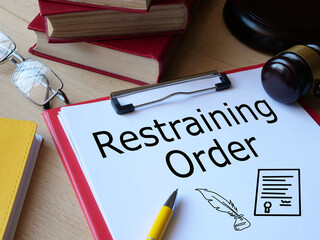
If you violate an order of protection in New Jersey, you could face significant legal consequences and repercussions. It is crucial that you understand your legal rights and options when facing a restraining order. Work with an experienced Mercer County criminal defense lawyer for skilled representation during your case.
What is an Order of Protection?
An order of protection is another term for a restraining order. This type of court order prohibits a person from coming within a certain distance of another person. The order is generally valid for a set period of time and can be either temporary or permanent.
- TRO: A TRO (temporary restraining order) is issued by the court in emergency situations where the individual petitioning needs protection immediately. If the petitioner can provide the court with evidence explaining why they need a restraining order, the judge can issue the TRO even without the defendant present. TROs generally last for 10 days or until a hearing is scheduled to determine whether a more permanent solution is necessary.
- FRO: An FRO (final restraining order) is a permanent restraining order and lasts until a court terminates it by request and evidence from either party. An FRO can only be issued at a hearing where both the accuser and accused present their side of the story along with evidence backing up their claims. If the accused does not show up, the case can be decided without their testimony or evidence.
If the judge is convinced that an FRO is necessary, they will issue one at the hearing and the defendant will be required to abide by the terms. If not, the TRO will expire and no further action is required.
What Happens if I Violate an Order of Protection?
If you violate an order of protection in any way, you can be considered in contempt, per N.J.S.A. 2C:25-30 and N.J.S.A. 2C:29-9. Contempt is defined as the intentional disregard of a court order or rule. Because both TROs and FROs are issued by the court and are legally enforceable, to knowingly act in opposition of the conditions can place you in contempt of court.
According to N.J.S.A. 2C:29-9, a person is guilty of contempt if he “purposely or knowingly disobeys a judicial order or hinders, obstructs or impedes the effectuation of a judicial order or the exercise of jurisdiction over any person, thing or controversy by a Court, administrative body or investigative entity.”
This statute states that to purposefully violate a provision in an order entered under the Prevention of Domestic Violence Act of 1991 or entered under the provisions of a substantially similar statute can be charged as either a disorderly persons offense, fourth-degree crime, or third degree crime.
If convicted, you can face a variety of penalties including significant fines, jail time, community service, counseling, and more. To learn more, reach out to a skilled defense attorney at the Law Office of Douglas Herring today.

